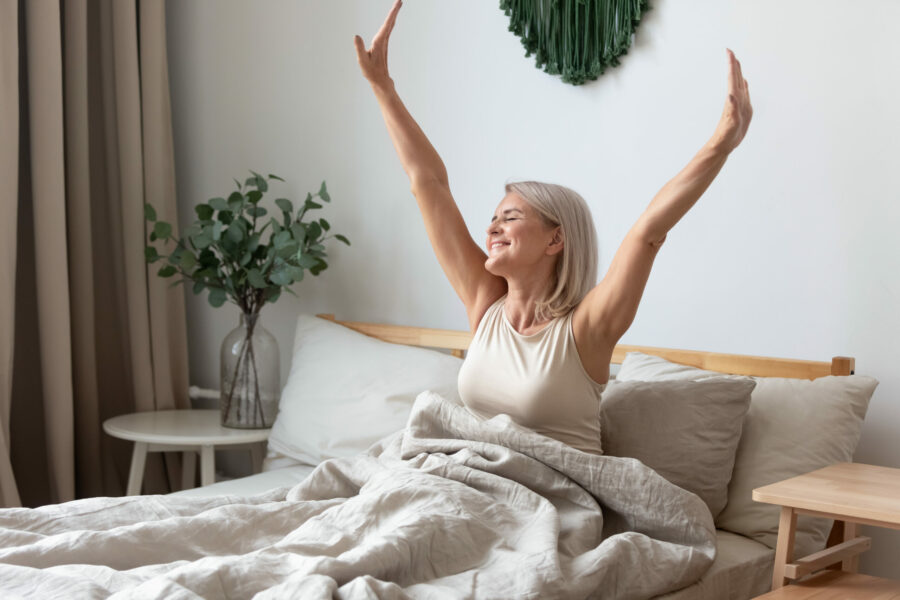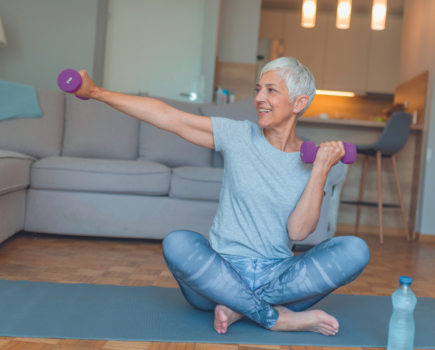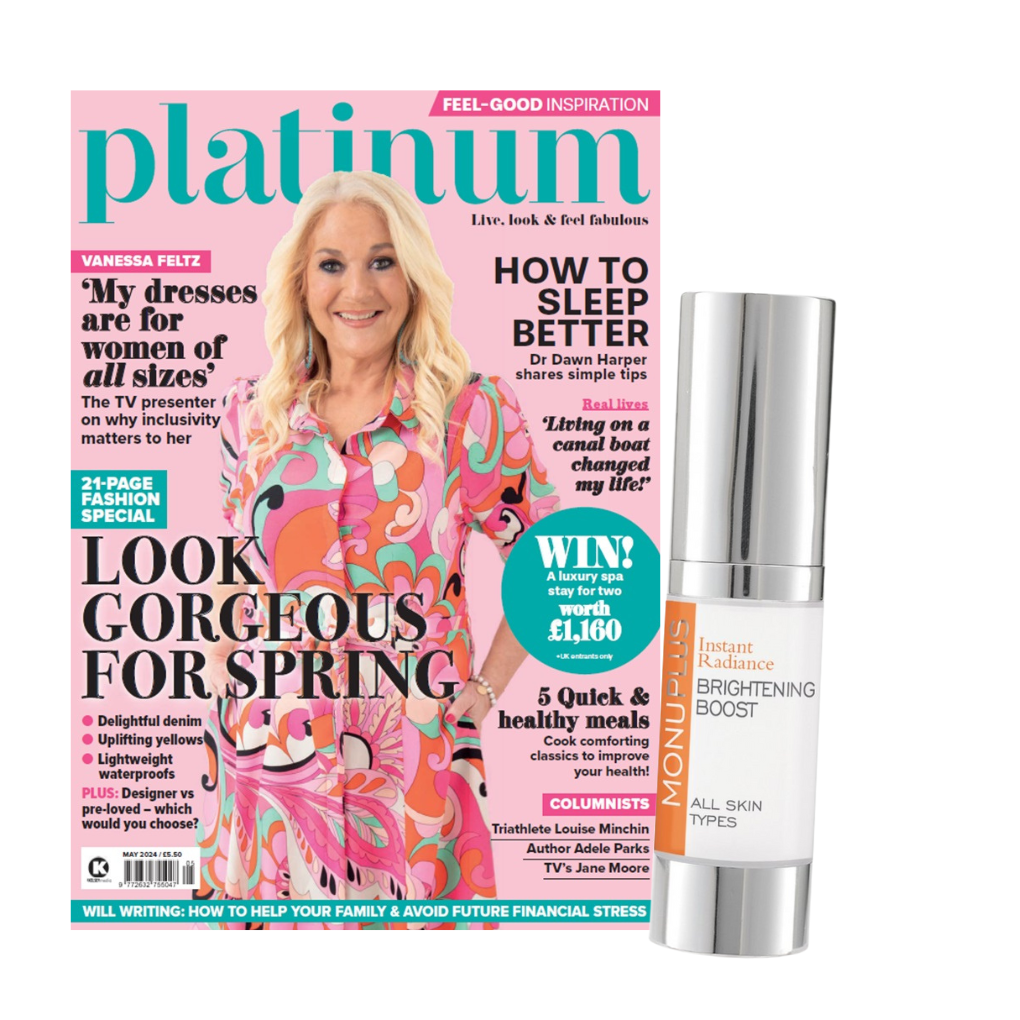Long-time insomniac Claire Cantor found that melatonin helped her get better sleep. Here, she speaks to experts and doctors to find out the science behind the hormone.

I’ve recently had a sleep epiphany. Sounds dramatic I know, but after 20 years of living with chronic insomnia and a permanent feeling of fogginess as if I have flown cross continent nightly in my bed (without the benefits of a fabulous holiday!), I am cautiously declaring a breakthrough.
I’m not saying that I have morphed into a dormouse, happily snoozing through the night without so much as twist or turn in my bed. No, this is more a subtle, yet noticeable ability to actually go back to sleep after waking in the night. I still witness 3.30am with a sinking heart, but now I often close my eyes and drift in and out of slumber, until a wake-up time that even a seasoned insomniac may call reasonable.
What is this new-found elixir? It’s the not-so-new supplement melatonin.
I am probably arriving late to the melatonin party, yet over the years I have worked my way systematically through every over-the counter sleep product and only taken ‘proper’ sleeping pills in emergencies. However, during a recent, lengthy health overhaul with my GP, where sleep was a thorny topic on my list, it was recommended that I try melatonin.
After a few weeks of improved sleep, my inner sceptic started to wake up. Was I just dreaming up a positive impact because I wanted to believe melatonin was the holy grail? Did it matter? I decided to scrutinise the data on the true efficacy of melatonin.
-
36% of UK adults struggle to get to sleep at least on a weekly basis
-
Almost 1 in 5 have trouble falling asleep every single night
-
Nearly half of the UK have trouble falling asleep at least once a month
-
The town of St Helen’s prescribes more insomnia medication than any other place in the UK at 24.7 per 1,000 people.
-
Almost half of adults aged 18 and above (48%) said that sleeping badly had a negative effect on their mental health, according to polling conducted in early 2020
-
(mentalhealth.org.uk)
-
£40.2 billion – the cost to the UK economy caused by sleep deprivation

What is melatonin?
It’s been nicknamed the ‘vampire hormone’ as it comes out at night. It is a naturally occurring hormone, produced by the pineal gland, and its function is to tell our body to get ready for sleep.
“The pineal gland is stimulated to produce melatonin when it is dark, while light causes that production to stop,” says Samantha Briscoe, Lead Clinical Physiologist at the London Sleep Centre, based at London Bridge Hospital. “Melatonin helps regulate circadian rhythm and synchronises our sleep-wake cycle with the external cues of night and day. Higher levels of melatonin in the evening are one of our key drivers for the feeling of sleepiness and falling asleep.” Melatonin is a ‘chrono-biotic’, meaning it can shift biological rhythms. In relation to sleep it can affect the body’s 24-hour clock. The human body produces melatonin two hours before sleep, provided the light is dim. This is known as dim light melatonin onset – DMLO. Acting as a time signal, it goes around the body saying ‘it’s time to prepare to sleep’.
“It’s commonly understood that blue light suppresses melatonin. TVs, computers and mobile devices emit blue light, which can disrupt the natural processes triggered by production of melatonin. If you have trouble with sleep, it may be helpful to avoid use of screens and devices at night, turning down the brightness on the screen or wearing blue light blocking glasses.”
How to use it
“People think melatonin is a sleeping aid,” says Neil. “But unlike sleeping pills, it isn’t putting you to sleep, it is telling you to sleep. It’s not going to make you sleepy if you take it during the day, as the sunlight suppresses the natural production of melatonin and will override any extra supplementation. Melatonin is governed by natural sunlight and darkness, so supplementing with small doses of melatonin in the daytime is a very minor change.”
Melatonin is readily available over the counter in the US where it is unregulated by the medicine’s authority. This means that there is no control over the amount of melatonin in the product. Neil explains, “In the US, melatonin is classified as a food additive, whereas in the UK, melatonin is regulated by the medicine’s agency and is only available on prescription at the discretion of your physician on a named patient basis.”
The recommended dose for adults is 2mg of melatonin a couple of hours before you want to go to sleep, to coincide with the body’s natural production of the hormone. Melatonin can be prescribed for children in doses from 0.5mg-5mg, but there are few studies into the long-term side effects.
The verdict
The scientific jury is still out on the efficacy of melatonin for insomnia, due largely to the lack of studies into the hormone and the fact that over-the-counter melatonin is unregulated. Although melatonin appears to have few side effects, Neil remains cautious, “For me, the key issue with melatonin is the lack of data on its safety. As a natural substance, melatonin cannot be patented or monetised hence the lack of studies into its efficacy.
“However, one company has created a synthetic melatonin, called Circadin, which is licensed for use in people over the age of 55. Because the role of melatonin is to reset body clocks, it can also potentially have a negative effect on body clocks such as the menstrual cycle. Before reaching for melatonin supplements, I recommend following a healthy pre-bed routine and general sleep hygiene rules – such as cutting down screen time, having a cool bedroom and relaxation techniques – as a first step to improving insomnia.”
Get better sleep
Melatonin may be prescription-only, but these products incorporate herbs and natural remedies to help boost your chances of quality shut-eye.

this works Deep Sleep Bath Soak, £16.50, Look Fantastic
One study found that taking a hot bath about 90 minutes before bed could help people fall asleep more quickly. Try this soak in your bath, incorporating sleep-boosting lavender, chamomile and vetivert.

Form ZZZZs Sleep Capsules, £19 for 30 capsules, formnutrition.co.uk
These capsules combine 5HTP with calming amino acids and the dietary minerals magnesium and zinc to help support quality sleep.

New Nordic Melissa Dream Sleep Supplement, £7.99, newnordic.co.uk
These tablets use lemon balm – known for its anti-anxiety and sleep-inducing benefits – with L-theanine, chamomile, vitamin B complex and magnesium to help you get your best sleep ever.









